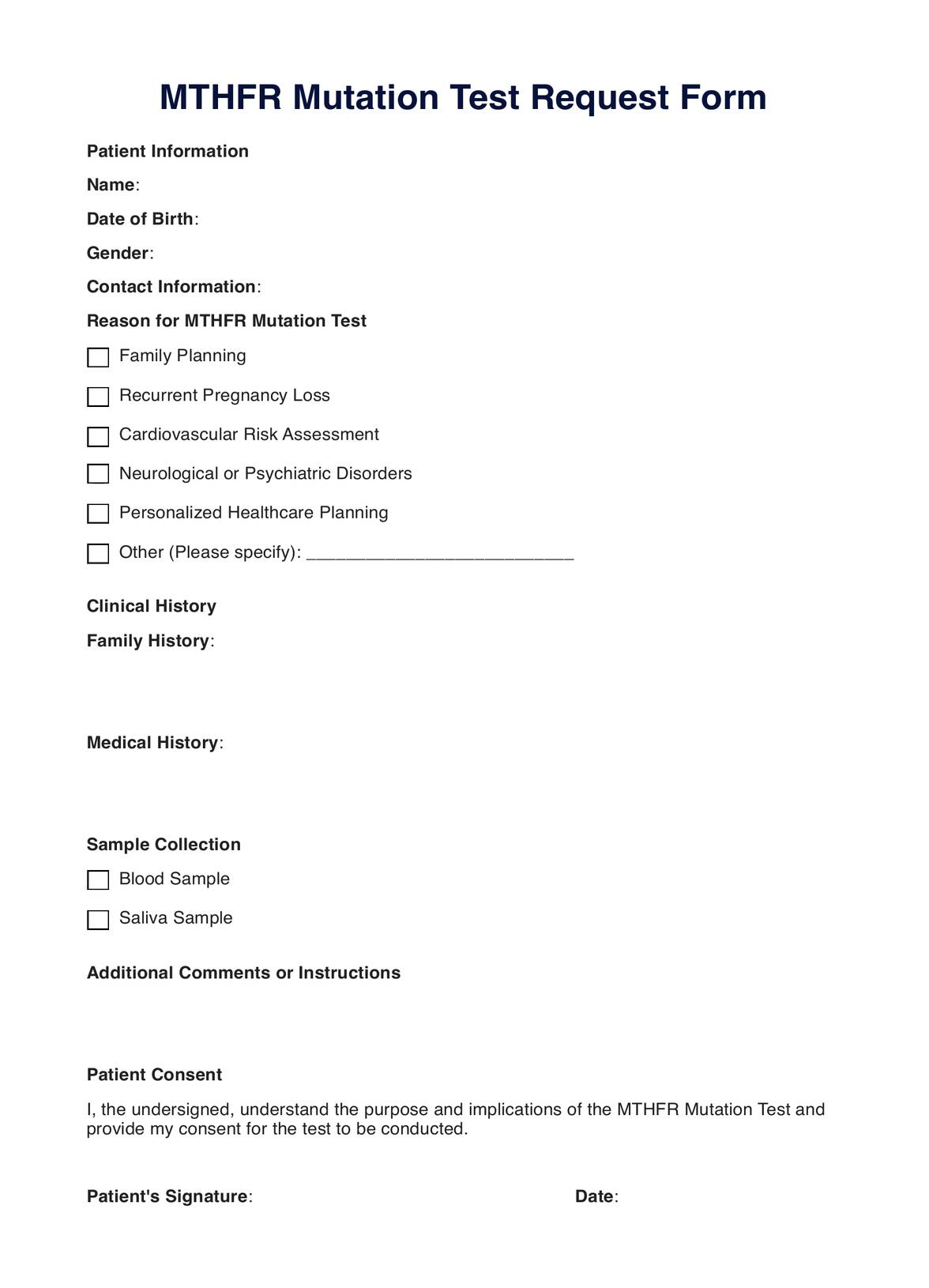Healthcare providers, genetic counselors, and individuals with family history or symptoms associated with MTHFR-related conditions often request this test.

Discover your genetic health with an MTHFR Mutation Test. Learn about personalized care. Get tested today.
Healthcare providers, genetic counselors, and individuals with family history or symptoms associated with MTHFR-related conditions often request this test.
They are used in family planning, recurrent pregnancy loss, cardiovascular risk assessment, neurological disorders, and personalized healthcare planning based on genetic factors.
The test involves collecting a blood or saliva sample, analyzing the DNA for MTHFR gene mutations, and interpreting the results to guide healthcare recommendations.
EHR and practice management software
*No credit card required
Free
$0/usd
Unlimited clients
Telehealth
1GB of storage
Client portal text
Automated billing and online payments